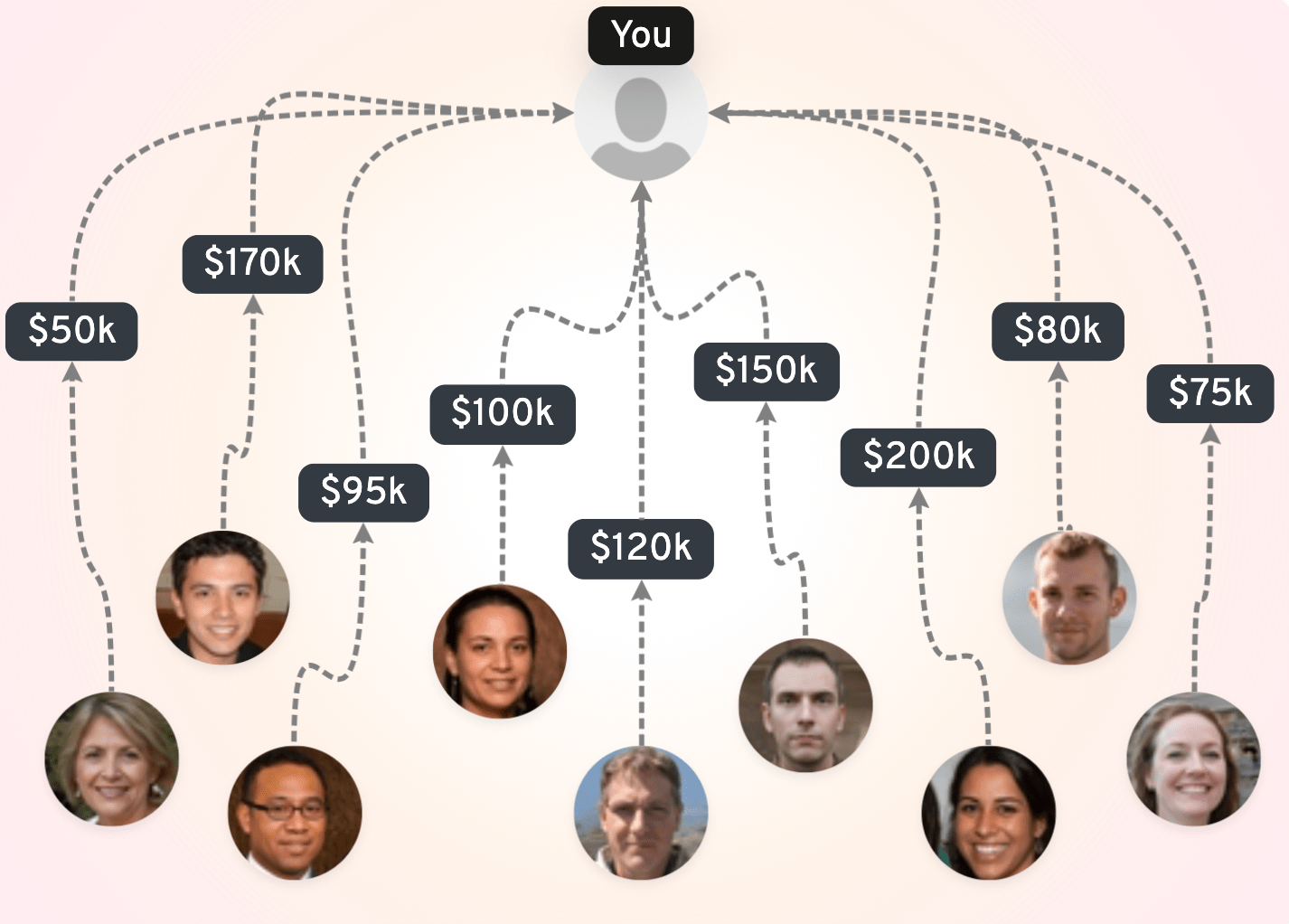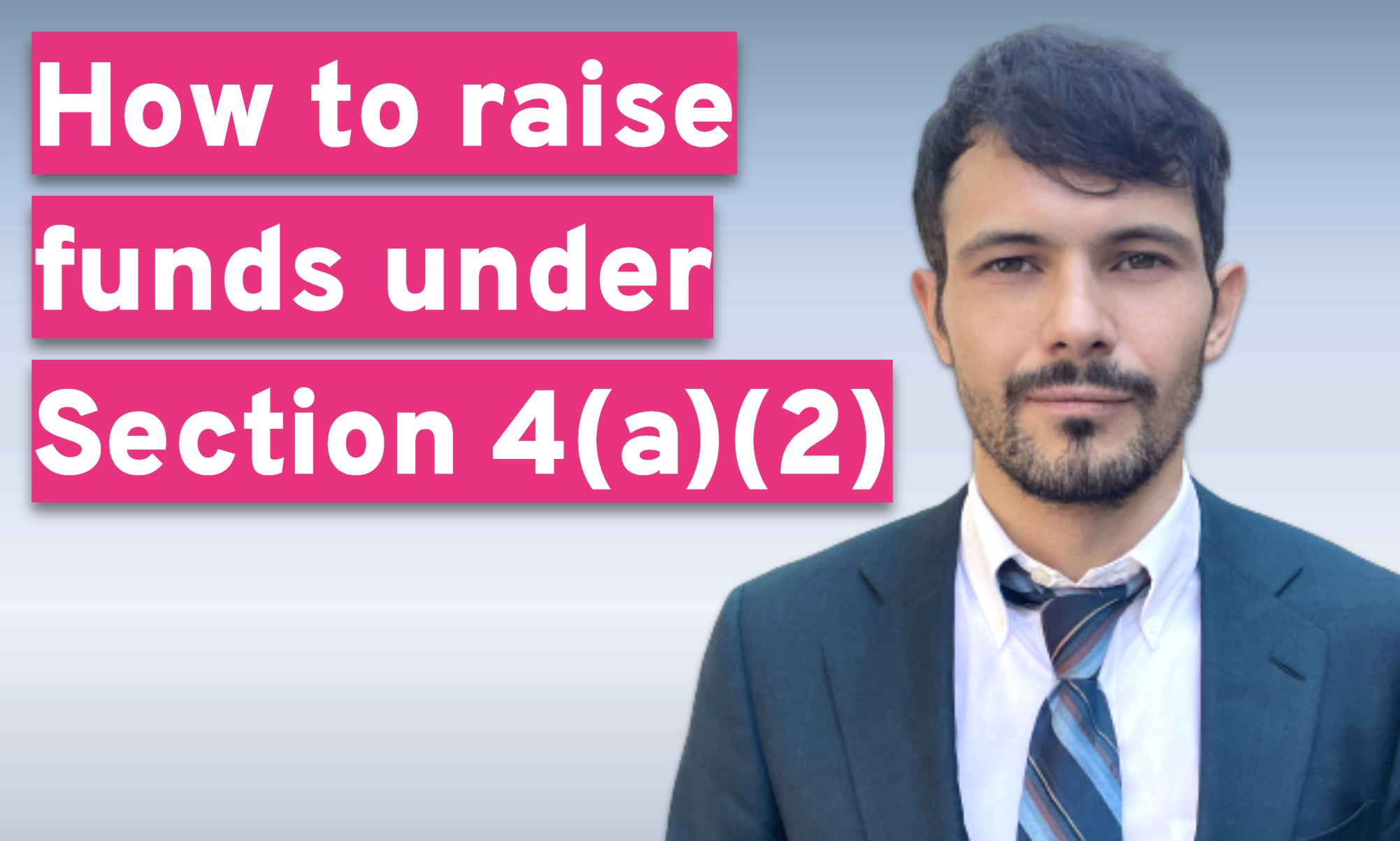Raising funds for your startup is never easy. Despite having interest from investors, you still need to make sure you are legally prepared to raise funds. This is part of our series of posts on how to legally raise funds in the United States.
Table of Contents
What is Regulation D?
Conducting a public offering is a costly and time-consuming process and raising capital in reliance on Section 4(a)(2) of the Securities Act of 1933 includes some legal uncertainties (which I summarize in my articles ‘What are securities registration exemptions?’ and ‘Raising funds under Section 4(a)(2)’). Due to the somewhat unclear framework afforded by the Section 4(a)(2) statutory private placement exemption, the SEC adopted Regulation D in 1982 (Reg D, if you’re cool). Reg D contains a set of rules that allow companies to issue securities in private offerings as opposed to public offerings and provides three reliable, efficient, and well-known safe harbors for the offer and sale of securities exempt from the registration requirements of the Securities Act: Rule 506(c), Rule 504, and the exemption du jour, Rule 506(b).
Who can invest under Regulation D, Rule 506(b)?
Rule 506(b) is a popular exemption from registration, as it allows companies to raise an unlimited amount of money from accredited investors and up to 35 non-accredited investors, provided that such non-accredited investors are each a “sophisticated investor” (meaning a non-accredited investor with sufficient knowledge and experience in financial and business matters to evaluate the merits and risks of the prospective investment). To determine an investor’s qualification, companies usually include an investor questionnaire in the applicable offering documents and may rely on investors representations. Keep in mind that Rule 506(b) offerings are subject to bad actor disqualification provisions and companies are precluded from relying on the exemption if the offering involves certain felons and other “bad actors”.
:max_bytes(150000):strip_icc()/GettyImages-82880353-064135cb483940ff9230420d095b6d31.jpg)
Can I advertise my Rule 506(b) offering?
Rule 506(b)'s primary disadvantage is that no general solicitation or general advertising is permitted to market the offering; consequently, a company relying on Rule 506(b) will only be able to sell its securities to investors with whom it has a pre-existing relationship.
What type of information is required under Rule 506(b)?
The information requirements under Rule 506(b) depend on the qualification of the offerees. If all investors participating in the offering are accredited investors, no information is required by law. It is important to note that this does not negate the best practice of providing truthful and complete information to all investors in a PPM, whether they are accredited or not. If, however, a single non-accredited investor (or more) is allowed to subscribe, the issuing company must provide detailed disclosure documents that generally contain the same type of information as required under Regulation A (yes, this includes financial statements). While no disclosures are required for accredited investors, should the company elect to provide them with any information, such information must also be shared with non-accredited investors.
What are the SEC filing requirements of Rule 506(b)?
Rule 506(b) is a federal safe harbor provided by Reg D and, therefore, a Rule 506(b) issuer is required to prepare and file a Form D with the SEC on EDGAR (the Electronic Data Gathering, Analysis, and Retrieval system) to meet compliance on a federal level. To do so, the Company should first obtain its EDGAR codes by filing a completed and notarized Form ID (for free!) on the EDGAR platform. While preparing a Form D does not take much time for an experienced securities attorney, its contents should be carefully drafted -- once filed on the EDGAR platform, the Form D instantly becomes available to the public. Beware, the clock is ticking: the Form D must be filed no later than 15 calendar days after the date on which the first investor is irrevocably contractually committed to invest in the offering made pursuant to Reg D (the SEC refers to this as the date of the first sale). To err on the side of caution, many issuers and their counsels often decide to file the Form D prior to the first sale.
What are the state filing requirements of Rule 506(b)?
Keep in mind that securities are governed on both federal and state level; state securities laws and regulations (“Blue Sky laws”) generally give state regulators the authority to approve or disapprove an offering based on their assessment of its merits. The general mechanics of Blue Sky laws are somewhat similar to the federal registration requirements set out under Section 5 of the Securities Act, so they also include exemptions from their registration requirements. Securities offered and sold in reliance on Rule 506 qualify as “covered securities”, meaning state Blue Sky registration requirements are preempted; however, most states still require that an issuer offering securities in a particular state make a notice filing in that state, provide consent to service of process, and pay the applicable filing fee with respect to the covered securities. These state requirements vary and so do the applicable state filing deadlines (double, triple check your dates!). Companies relying on Rule 506(b) should always consider the applicable securities laws of the state(s) in which their investors reside. The good news is that a number of states have opted to participate in the Electronic Filing Depository system, a multi-state electronic filing platform which allows issuers to easily file their state Blue Sky notices and pay the applicable Blue Sky fees. Finale (very important) note: do not be late filing your Blue Sky notices, as you would be subject to state fines, investor lawsuits, and action by state securities agencies (so double, triple, quadruple check your dates!).
About the author
- Attorney Advertising -
Côme Laffay, Esq. is a corporate and securities attorney. He is Counsel at KBL Roche, a transatlantic full-service boutique law firm with offices in New York, Paris, and Munich. Côme's practice focuses on capital raising activities in both the private placement and the crowdfunding spaces, with the goal of supporting entrepreneurs and financial intermediaries.
KBL Roche
1115 Broadway, STE 1011 New York, NY 10010
come@kblroche.com
(646) 801-6171
Find your ideal investors now 🚀
Browse 10,000+ investors, share your pitch deck, and manage replies - all for free.
Get Started










